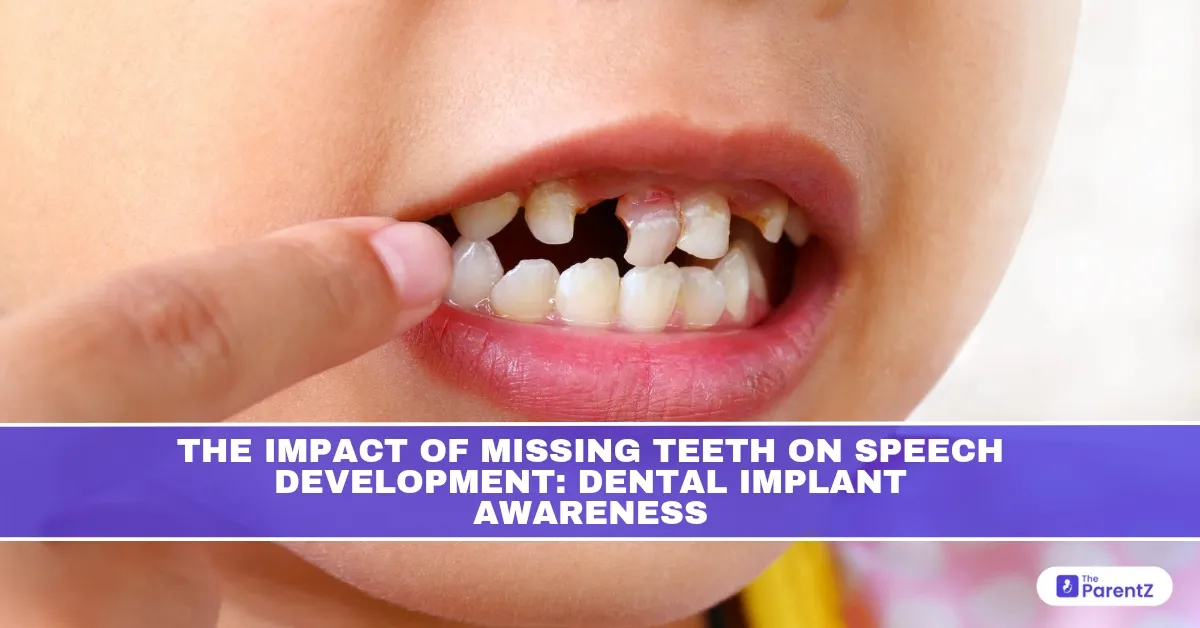Teeth play a crucial role in speech development, helping shape sounds and words. When a child has missing teeth, whether due to injury, decay, or congenital conditions, it can lead to pronunciation difficulties, speech distortions, and lower confidence in communication.
If your child struggles with unclear speech due to missing teeth, it’s essential to consider dental solutions that can restore function and clarity. Dental implants, bridges, and other treatments can help improve articulation, prevent long-term speech issues, and boost self-esteem.
How Missing Teeth Impact Speech
Teeth work together with the tongue and lips to form words. Certain sounds, like “s,” “th,” “f,” and “v,” rely on the correct positioning of the tongue against the teeth. When teeth are missing, a child may experience:
- Lisps and whistling sounds – Air escapes through the gaps, distorting speech.
- Difficulty pronouncing certain words – Sounds like “th,” “s,” and “z” become unclear.
- Slurred or muffled speech – Missing teeth prevent proper airflow control.
- Lower confidence in speaking – Children may feel self-conscious about their speech.
Common Speech Issues Caused by Missing Teeth
1. Lisping and Sound Distortions
Front teeth are essential for forming sounds like “s” and “z.” When they’re missing, children may develop a lisp or have trouble producing these sounds correctly.
2. Difficulty Pronouncing “Th” and “F” Sounds
Words like “think” and “father” require proper tongue and tooth placement. Without front teeth, these sounds may be replaced with incorrect substitutions, making speech harder to understand.
3. Reduced Speech Clarity
Missing molars and premolars can cause muffled or unclear speech, affecting a child’s ability to communicate effectively.
4. Social and Emotional Impact
Speech difficulties can make children hesitant to speak in class, participate in conversations, or express themselves confidently. This can affect their self-esteem and social interactions.
Can Dental Implants Help Improve Speech?
Yes! Dental implants provide a permanent solution for missing teeth, helping to restore natural speech function and pronunciation. Here’s how they help:
- Provide stable support for the tongue and lips – Implants act like natural teeth, assisting in forming clear sounds.
- Prevent air leakage – Unlike removable dentures, implants stay in place, ensuring consistent speech patterns.
- Restore proper articulation – With teeth replacements in place, children can pronounce words more accurately.
- Boost confidence in communication – A complete smile encourages children to speak without hesitation.
Alternative Solutions for Missing Teeth
If dental implants aren’t an immediate option due to age or other factors, other dental solutions can help maintain speech clarity:
1. Space Maintainers
Best for: Children who lose baby teeth too early.
Prevents other teeth from shifting and affecting speech development.
2. Dental Bridges
Best for: Older kids and teens with permanent tooth loss.
Provides a non-surgical, fixed solution to replace missing teeth and improve speech.
3. Partial Dentures
Best for: Children missing multiple teeth.
Affordable and removable, but may require adjustments for proper speech function.
Conclusion
Missing teeth can significantly impact a child’s speech, making pronunciation difficult and lowering their confidence. Fortunately, dental implants offer a permanent solution to restore speech clarity and function.
If your child is experiencing speech difficulties due to missing teeth, consult a pediatric dentist to explore the best treatment options. With the right solution, your child can regain clear speech, confidence, and a healthy smile!





Be the first one to comment on this story.